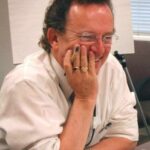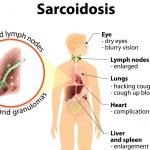Ludwik Fleck and Naturopathic Medicine: Allies in All the Right Places
David Schleich, PhD
Since the 1960’s, the influence of Ludwik Fleck has been rekindled, affecting naturopathic medicine along the way. The philosophy of medicine—what Foss (2002), Kuhn (1962), and others (Trenn and Merton, 1979) consider to be an emerging discipline—is gathering momentum in intellectual circles and has real potential to become more established as part of the philosophy, history, and research conversation in our colleges. These thinkers have been challenging the notion that scientists (including medical scientists) could provide accounts of facts devoid of conceptual and evaluative commitments (Fleck, 1936; Kuhn, 1962; Veatch, 1977, 2006). While this postmodern philosophy of science originally was developed primarily in the physical sciences, the implications for medical science were soon realized. Taken seriously, the work of Fleck and Kuhn and their compatriots made the notion of a value-free set of medical facts incoherent. The reporting and interpreting of that research will always contain within it a worldview (to use the now somewhat dated Kuhnian terminology). Whenever a medical scientist writes up research, it must be composed while making conceptual and evaluative commitments. Different conceptual commitments and evaluative judgments would have led to the writing of the account differently. Whenever a physician reads the medical literature, he or she must read it through the lens of a unique set of such commitments.
Fleck’s 1935 monograph (Enstehung und Entwicklung einer Wissenschaftlichen Tatsache) was neglected by the biomedicine profession and by higher education social scientists at the time but was later understood to be prescient. His work teaches us even now about the importance of “reconcile[ing] commitment to scientific objectivity” (Fagan, 2009, p. 274). This knowledge, in turn, enables more careful research work on our own modalities, theories, and practices. Fleck was a fascinating, often controversial, figure in social constructionism. A bacteriologist and immunologist in Poland, he became a prominent scientist, despite persecution by the Nazis and the communists. Fleck was associated for many years with the Polish school of philosophy of medicine and eventually emigrated to Israel, where he was appropriately honored for his lifework.
Fleck was a pioneer in understanding how medical knowledge is socially constructed. He pointed out that the bias of their approach affected the conclusions of scientists and even influenced what they chose to study in the first place. As Lowy put it, “According to Fleck, scientific facts produced by a given thought collective are therefore shaped by that collective’s thought style, and are incommensurable with facts produced by other thought collectives” (1994, p. 9). Essentially, Fleck recognized even 8 decades ago that each group of scientists (whom he labels as Denkkollektiv) “elaborates a ‘thought style’ which contains norms, concepts and practices of that collective” (Lowy, 1994, p. 8). What this boils down to is that early on work was being done to understand how medical knowledge is socially constructed. Constructivist science studies are well known these days in the naturopathic and other medical communities, as is the literature of the sociology of scientific knowledge; however, this was not the case in the earliest formative years of the profession, when we could have used these insights to ward off the intentionally lethal blows of the medical trust, which were in full assault mode in the 1920’s and 1930’s. At the same time as the biomedicine profession was assembling and consolidating their hierarchy of control in terms of regulatory and public policy frameworks, as well as constructing the political networks and lobby techniques that gave the allopaths dominant control of primary care and health services, naturopathic medicine was faltering in terms of numbers and legitimacy and could not mount a systematic, recognized philosophical response.
Fleck’s notion of the relativity of truth originates in medicine, and such debates were to be encouraged. When considering Fleck’s ideas, one is reminded of Immanuel Kant’s work in which the notion of a priori synthetic knowledge affects the independence of our cognitive acts. Fleck commented in his groundbreaking early work:
A truly isolated investigator is impossible. . . . An isolated investigator without bias and tradition, without forces of mental society acting upon him, and without the effect of the evolution of that society, would be blind and thoughtless. Thinking is a collective activity. . . . Its product is a certain picture, which is visible only to anybody who takes part in this social activity, or a thought which is also clear to the members of the collective only. What we do think and how we do see depends on the thought-collective to which we belong. (1935, p. 70)
Fleck, like those who came after him, wanted to determine whether an objective truth could be achieved, in medicine or in any aspect of intellectual enterprise. Whether it was Fleck’s and Kuhn’s admonition that knowledge was dependent on the observer’s location in the analysis or Foucault’s astonishing insights into the nature of power in society (hospitals, schools, factories, homes, and families), the relevance of this body of literature to what the naturopathic profession is trying to achieve as a distinct professional body is clear. A useful example of how Fleck could have been very helpful to the early formation of naturopathic philosophy and theory (building on Lindlahr, Lust, Havard, Staden, and others) is his 1935 work about germ theory. As Brorson reported, the “Fleckian approach offer[ed] an attractive alternative to positivist reconstructions of the early history of germ theories and provid[ed] a useful framework for a deeper understanding of the sociocultural background of the development of modern knowledge of infection” (2006, p. 71).
An accumulating literature about the philosophy of medicine continues to this day. Essentially, we could have learned much (had there been an active, supported scholarly community of naturopathic theory and philosophy at the time) about how to counter the juggernaut of biomedical theory and regulation that rallied and marched into control every facet of research focus, postgraduate internship support, public health assistance, and eventually insurance codes.
Fleck thought, as many NDs continue to believe, that “many established scientific facts are best understood as interpretations of prescientific, somewhat hazy ‘proto-ideas’ in the framework of a certain ‘thought style’” (Brorson, 2000, p. 148). Brorson’s contemporary work, as a case in point, needs to be better known in the naturopathic scholarly world. He has focused for some time on the problem of combining two conflicting perspectives on the history of science, the problem of accounting for the “notion of continuity” within a nonrealist theory of knowledge and the persistent problem of “non-neutrality of the analyst’s viewpoint” (Brorson, 2000, p. 151). Sound familiar? Our challenge is that we have been so busy training physicians to grow the profession and frequently so preoccupied with the vulnerable limits of the cash flow of our various agencies and institutions that we tend to be focused on what we have already been able to carve out in terms of licensing, certification, and registration. In such a landscape, the real impact of these theoretical and philosophical concerns does not show up consistently in our curriculum and research. There are noteworthy efforts to fix this. The Foundations of Naturopathic Medicine Project, for example, is very interested in the epistemology of biomedicine and how this paradigm compares and contrasts with naturopathic medicine.
The philosophical roots of modern medicine are frequently attributed to Hellenic traditions, in which medicine was considered an art. Today, arising from the ascendancy of the scientific method and technological progress, the art and philosophy of medicine are conjugated through that scientific prism. Some would argue that homeopathy as a discipline does not treat the patient objectively or mechanistically, focusing, say, on symptoms and test results. Others would insist that modern medicine—despite its reductionist framework and despite the grip of the scientific method on its protocols and privileges in civil society—is more effective in dealing with illness, disease, and accidents than a homeopathic medical system could be. What heroic biomedicine has done, despite the effectiveness debate, is to treat the patient as an object and no longer as a whole person, all the more reason, some would say, for us to invest energy into the study of the correlation of medicine and philosophy using homeopathy as an ideal medical system to study from this perspective. The biomedicine leaders cannot tolerate such coexistent systems in the healthcare landscape.
Whether he was studying bacteriology or immunology, Fleck contended that diseases do not exist in nature but are constructed by physicians for didactic reasons. Many early NDs felt the same way. The next year, Fleck wrote: “It is easier to find one’s way in a forest than in botany. It is easier to cure a patient than really to know what his disease is” (1936, p.). Yet, this very nature of medicine is regarded by the exact sciences as nonscientific. It appears as if medicine is more an art than a science, but not to Fleck, who claims that even in the exact sciences facts are not absolute and they develop. There is no absolute truth even in physics, and the physical scientific fact evolves and develops exactly as in medicine. Even in physics, it is impossible to separate the object from the subject, and both are influenced by the sociology of thought, about which Richenda Power has much to say.
She reported, “Rarely questioned [is] the idea of science as essential to medicine, except by Wetzler” (Power, 2000, p. 135). With respect to the dominant position of science in the study and practice of medicine, Wetzler spoke of the following:
- the myth that educational processes are inherently beneficial
- the myth of the basic sciences or ‘physico-chemico-reductionism’
- the myth of excellence, in which standards are supposedly maintained by dubious or at least questionable educational methods and means of assessment
- the myth of the false foundations (that no student can possibly deal with a clinical problem unless he has studied ‘all the basic sciences’). (1984, p. 58)
Like Wetzler, Power provides a remarkable compendium of definitions associated with the “art” and “science” of “holistic medicine” (2000, p. 133). She found “few statements that contained direct claims for holistic medicine being an art” (Power, 2000, p. 128) at the same time as she discovered a much larger representation of material on the “science” of holistic medicine. She commented: “It was used as powerful symbolic capital in political struggles between groups of health workers” (Power, 2000, p. 129). Fascinating for our profession is this social scientific debate that Power summarized, characterized by such statements as the following: “There is knowledge other than the scientific; we need a new form of science and medicine; Instinctive common sense and experience are good enough; and Medicine is not scientific anyway” (2000, p. 132).
In the era when thinkers such as Stephen Hawking (2010) insist that the universe is governed by universal and absolute mathematical laws (a view underlying modern physics), the existence of the kind of relativist idealistic view of the universe is threatened by a new scientific revolution known as chaos theory. Chaos theory is actually a field of study in mathematics but with applications in physics, engineering, economics, philosophy, and biology. Because modern biomedicine is, epistemologically speaking, a subset of the discipline of biology, the claims that nothing in nature is absolute have strong implications. In chaos theory, statements, facts, and truths are relative. The sense of the absolute, so typical of physics and deeply embedded into its thought style, will from the viewpoint of other thought styles always remain relative. Naturopathic physicians have known this forever. It is tough on biomedicine professionals because the deterministic nature of the systems they rely on is not necessarily predictable. The allopathic medical establishment’s studies in epilepsy, for example, try to make links between initial or presenting conditions and seemingly random seizures (Complexity Digest 199.06). Frustrating for the MD/PhDs.
No wonder that Fleck’s revolutionary ideas were rejected 8 decades ago. His philosophy, though, found a more accepting audience after Kuhn prepared the scientific community with The Structure of Scientific Revolutions (1962). Fleck’s philosophy was a forerunner of chaos theory. Now that the number of his followers is growing, his philosophy will be updated in light of modern technological innovations and the chaos revolution. Fleck applied medical reasoning for demonstrating the relativity of truth in science. He would have loved how NDs think, had we been in the conversation a half century ago when he was most prolific in his work.
In spite of being an epistemologist, Fleck was first of all a medical scientist at the same time as he was a philosopher of modern medicine who introduced the notion of the relativity of diseases. In his view, the definition of a disease is arbitrary and depends solely on the thought style within which it is studied. Each discipline involved in medicine defines the disease in a different way. Different subspecialists in the reductionist biomedicine model (clinician, bacteriologist, or epidemiologist, for example) understand the patient’s experience differently. The NDs, too, have their point of view. Wobbly and varying interpretations of what the patient is experiencing also exist in oncology, for example, where differing points of view or angles on the information lead to questions: Is it a parasite or a mutated gene? Or could it result from the breakdown of immunological surveillance? The clinical thinking indeed embraces the usual three ingredients, neoplasia, paraneoplasia, and cachexia, but it does not stop there. Enter, stage left, the whole-person patient.
Philosophical, eh? Our curriculum needs to embrace and study such questions with confidence and gusto. We are not preparing natural medicine technicians for a confusing marketplace. We are preparing physicians whose worldview has power, relevance, and currency. It begins in our schools. Our teachers have a very large responsibility to know about these debates so that they can keep on keeping on as the profession emerges like it never has before. The Table (Biomedicine vs Naturopathic Medicine) presumes any number of philosophical touchstones from which to proceed. Shall we?
 David Schleich, PhD is president and CEO of NCNM, former president of Truestar Health, and former CEO and president of CCNM, where he served from 1996 to 2003. Previous posts have included appointments as vice president academic of Niagara College, and administrative and teaching positions at St. Lawrence College, Swinburne University (Australia) and the University of Alberta. His academic credentials have been earned from the University of Western Ontario (BA), the University of Alberta (MA), Queen’s University (BEd), and the University of Toronto (PhD).
David Schleich, PhD is president and CEO of NCNM, former president of Truestar Health, and former CEO and president of CCNM, where he served from 1996 to 2003. Previous posts have included appointments as vice president academic of Niagara College, and administrative and teaching positions at St. Lawrence College, Swinburne University (Australia) and the University of Alberta. His academic credentials have been earned from the University of Western Ontario (BA), the University of Alberta (MA), Queen’s University (BEd), and the University of Toronto (PhD).
References
Brorson, S. (2000). Ludwik Fleck on proto-ideas in medicine. Medicine, Health Care and Philosophy, 3(2), 147-152.
Brorson, S. (2006, Winter). The seeds and the worms: Ludwik Fleck and the early history of germ theories. Perspectives in Biology and Medicine, 49(1), 64-76.
Complexity Digest. 199.06. http://comdig.unam.mx/. Dead link. (Cited in http://en.wikipedia.org/wiki/User:Myxylplyx.)
Fagan, M. B. (2009). Fleck and the social constitution of scientific objectivity. Studies in History and Philosophy of Science Part C: Studies in History and Philosophy of Biological and Biomedical Sciences, 40(4), 272-285.
Fleck, L. (1935). O obserwacji naukowej i postrzeganiu w ogóle. Przegląd Filozoficzny 38, 57-76. (Also cited in R. S. Cohen & T. Schnelle (Eds.), Scientific observation and perception in general [pp. 59-78]. Dorecht: Reidel; 1986.)
Fleck, L. (1936). The problem of epistemology. In R. S. Cohen & T. Schnelle (Eds.), Cognition and fact: Materials on Ludwik Fleck. Dorecht: Reidel; 1986.
Foss, L. (2002). The end of modern medicine: Biomedical science under a microscope. Albany: State University of New York.
Hawking, S. (2010). The grand design. New York: Bantam.
Kuhn, T. (1962). The structure of scientific revolutions. Chicago: University of Chicago Press.
Lowy, I. (1994). Ludwik Fleck and the history of sciences today. História, Ciências, Saúde-Manguinhos, 1(1), 7-18.
Power, R. (2000). A question of knowledge. New York: Longman.
Trenn, T. J., & Merton, R. K. (1979). The genesis and development of a scientific fact. Chicago: University of Chicago Press. (First English translation of Fleck L. (1935). Enstehung und Entwicklung einer Wissenschaftlichen Tatsache: Einfuhrung in die Lehre vom Denkstil und Denkkollektiv. Basel: Schwabe und Co., Verlagsbuchhandlung.)
Veatch, R. M. (1977). Case studies in medical ethics. Boston: Harvard University Press.
Veatch, R. M. (2006). How philosophy of medicine has changed medical ethics. Journal of Medicine and Philosophy, 31(6), 585-600.
Wetzler, M. (1984, April). Holistic aspects to medical training. British Journal of Holistic Medicine, 55-62.










